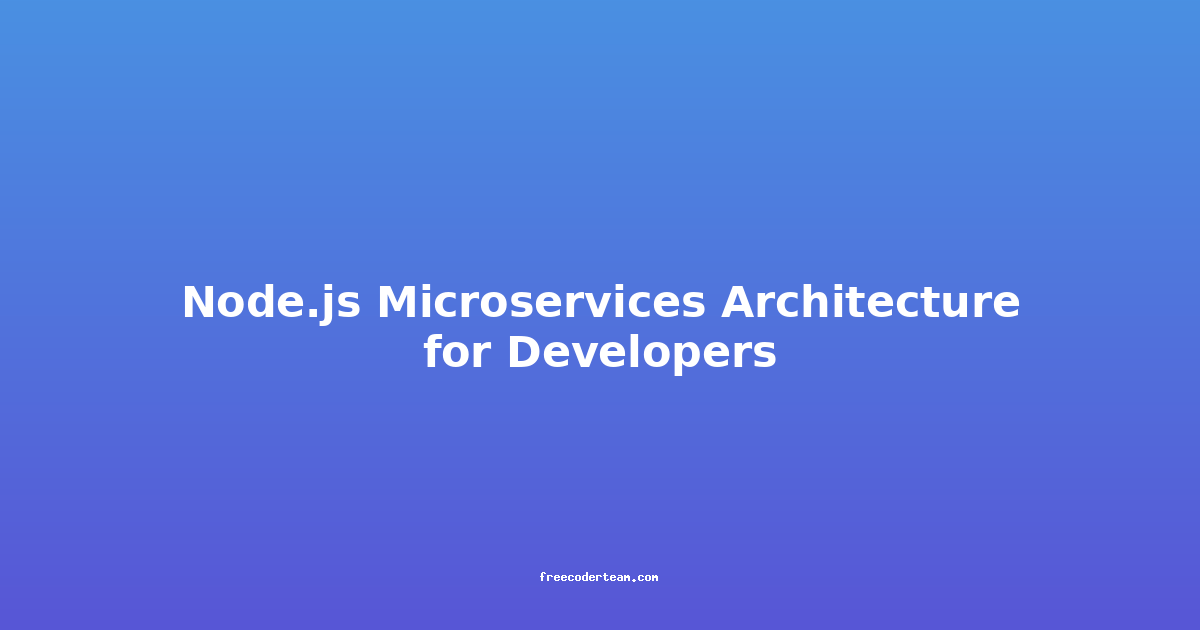Exploring PHP 8: New Features, Best Practices, and Practical Insights
PHP 8 marks a significant milestone in the evolution of the PHP ecosystem, bringing a host of new features that enhance performance, improve developer productivity, and introduce modern programming paradigms. In this comprehensive guide, we'll delve into the key features of PHP 8, provide practical examples, and offer actionable insights to help you leverage these advancements effectively.
Table of Contents
Introduction to PHP 8
PHP 8 was released on November 26, 2020, and it represents the most significant update to PHP since the release of PHP 7 in 2015. PHP 8 introduces new language features, performance optimizations, and improvements to the type system, making it easier and more efficient to write robust applications. This version is backward-compatible with PHP 7.4, but it also introduces new syntax and functionality that can lead to more maintainable and performant code.
New Features in PHP 8
1. Null Coalesce Operator Assignment (??=)
The ??= operator allows you to assign a value to a variable only if it is null. This simplifies handling default values and reduces boilerplate code.
Example:
// Before PHP 8
$username = isset($_GET['username']) ? $_GET['username'] : 'default_user';
// After PHP 8
$username ??= 'default_user';
Benefits:
- Reduces the need for explicit
isset()checks. - Makes the code more concise and readable.
2. Match Expression
The match expression provides a concise way to write switch-case logic, akin to pattern matching in modern programming languages like Rust or Go.
Example:
$day = 'Monday';
$action = match ($day) {
'Saturday', 'Sunday' => 'Relax',
'Monday' => 'Work Hard',
default => 'Plan for the week'
};
echo $action; // Output: Work Hard
Benefits:
- More expressive and readable than traditional
switchstatements. - Supports multiple patterns for a single case.
3. Constructor Property Promotion
This feature allows you to declare and initialize class properties directly in the constructor, reducing boilerplate code and improving maintainability.
Example:
class User {
public function __construct(
public string $name,
public int $age,
public ?string $email = null
) {
}
}
$user = new User('John Doe', 30, 'john@example.com');
echo $user->name; // Output: John Doe
Benefits:
- Reduces repetitive code for property declarations and setters.
- Makes the constructor more expressive and easier to read.
4. Attributes (Annotations)
PHP 8 introduces a native attribute system, allowing developers to attach metadata to classes, methods, and properties. This is similar to Java annotations or PHP annotations in third-party libraries.
Example:
#[Attribute(Attribute::TARGET_METHOD)]
class Cache {
public function __construct(public int $ttl = 60) {}
}
class ApiService {
#[Cache(ttl: 30)]
public function fetchData(): array {
return ['data' => 'cached'];
}
}
// Example usage with attribute reflection
$reflection = new ReflectionMethod(ApiService::class, 'fetchData');
$attributes = $reflection->getAttributes(Cache::class);
foreach ($attributes as $attribute) {
echo $attribute->newInstance()->ttl; // Output: 30
}
Benefits:
- Provides a native way to attach metadata to code elements.
- Enables powerful use cases like dependency injection, caching, and validation.
5. Named Arguments
Named arguments allow you to pass function arguments by name, improving code readability and reducing the risk of errors when dealing with functions that have many parameters.
Example:
function createUser(string $name, int $age, string $email): array {
return [
'name' => $name,
'age' => $age,
'email' => $email
];
}
// Using named arguments
$user = createUser(name: 'John Doe', age: 30, email: 'john@example.com');
Benefits:
- Makes function calls more self-documenting.
- Reduces the risk of parameter ordering mistakes.
6. Union Types
Union types allow you to specify that a variable or function parameter can accept multiple types. This enhances type safety and flexibility.
Example:
function calculate(int|float $a, int|float $b): int|float {
return $a + $b;
}
$result = calculate(10, 20.5); // Valid
$result = calculate('string', 20); // Throws TypeError
Benefits:
- Improves type safety by clearly defining acceptable types.
- Makes function contracts more expressive and flexible.
7. Named Parameters
Named parameters enable you to specify which parameter a value corresponds to when calling a function, regardless of its position.
Example:
function connect(string $host, int $port, string $username, string $password): void {
// Connection logic
}
// Using named parameters
connect(host: 'localhost', port: 3306, username: 'root', password: 'secret');
Benefits:
- Makes function calls more readable and maintainable.
- Reduces the risk of parameter misordering.
8. Static Return Type Declarations
This feature allows you to declare that a method will return the class itself, which is useful for method chaining.
Example:
class StringBuilder {
private string $content = '';
public function append(string $str): static {
$this->content .= $str;
return $this;
}
public function toString(): string {
return $this->content;
}
}
// Method chaining
echo (new StringBuilder())
->append('Hello')
->append(' World')
->toString(); // Output: Hello World
Benefits:
- Enables fluent interfaces and method chaining.
- Reduces the need for manually specifying the class name.
9. Finite Automaton-Based Regex
PHP 8 introduces a new regex engine based on finite automaton, which provides significant performance improvements for large datasets and complex patterns.
Example:
// Complex pattern matching
$pattern = '/(?<key>\w+)=(?<value>\w+)/';
$text = 'name=John age=30 email=john@example.com';
preg_match_all($pattern, $text, $matches, PREG_SET_ORDER);
foreach ($matches as $match) {
echo "Key: {$match['key']}, Value: {$match['value']}\n";
}
Benefits:
- Faster matching for large datasets.
- Better performance for complex regex patterns.
Best Practices for PHP 8
-
Leverage Modern Syntax: Use new features like constructor property promotion, named arguments, and match expressions to write cleaner, more maintainable code.
-
Embrace Type Safety: Utilize union types, return type declarations, and static return types to make your code more robust and easier to reason about.
-
Use Attributes Wisely: Define custom attributes for metadata and use them to enhance code organization and functionality.
-
Optimize Regex Patterns: For applications that heavily rely on regex, consider using the new finite automaton-based regex engine for better performance.
-
Refactor Gradually: If you're migrating from PHP 7 to PHP 8, gradually refactor your code to leverage new features, ensuring compatibility and maintainability.
Actionable Insights
-
Start with Small Projects: Experiment with PHP 8 features in small projects or proof-of-concept applications to get hands-on experience.
-
Update Your Development Environment: Ensure your local development environment and production servers are updated to PHP 8 to take full advantage of the new features.
-
Leverage IDE Support: Modern IDEs like PhpStorm, Visual Studio Code, and others provide excellent support for PHP 8 features. Use them to write code more efficiently.
-
Monitor Performance: Use profiling tools to measure the impact of new features like the finite automaton-based regex engine on your application's performance.
-
Stay Updated: Follow official PHP documentation and community resources to stay informed about best practices and security updates.
Conclusion
PHP 8 represents a major leap forward in the language's evolution, offering developers a powerful set of new features that enhance productivity, performance, and code maintainability. By adopting these features and following best practices, you can build more robust and efficient applications. Whether you're a seasoned PHP developer or new to the language, PHP 8 provides plenty of opportunities to improve your workflows and projects.
As you explore PHP 8, remember to balance innovation with practicality. Leverage the new features where they make sense, but don't hesitate to fall back on tried-and-true patterns when necessary. Happy coding!
Feel free to dive in and start experimenting with PHP 8 today! 🚀




